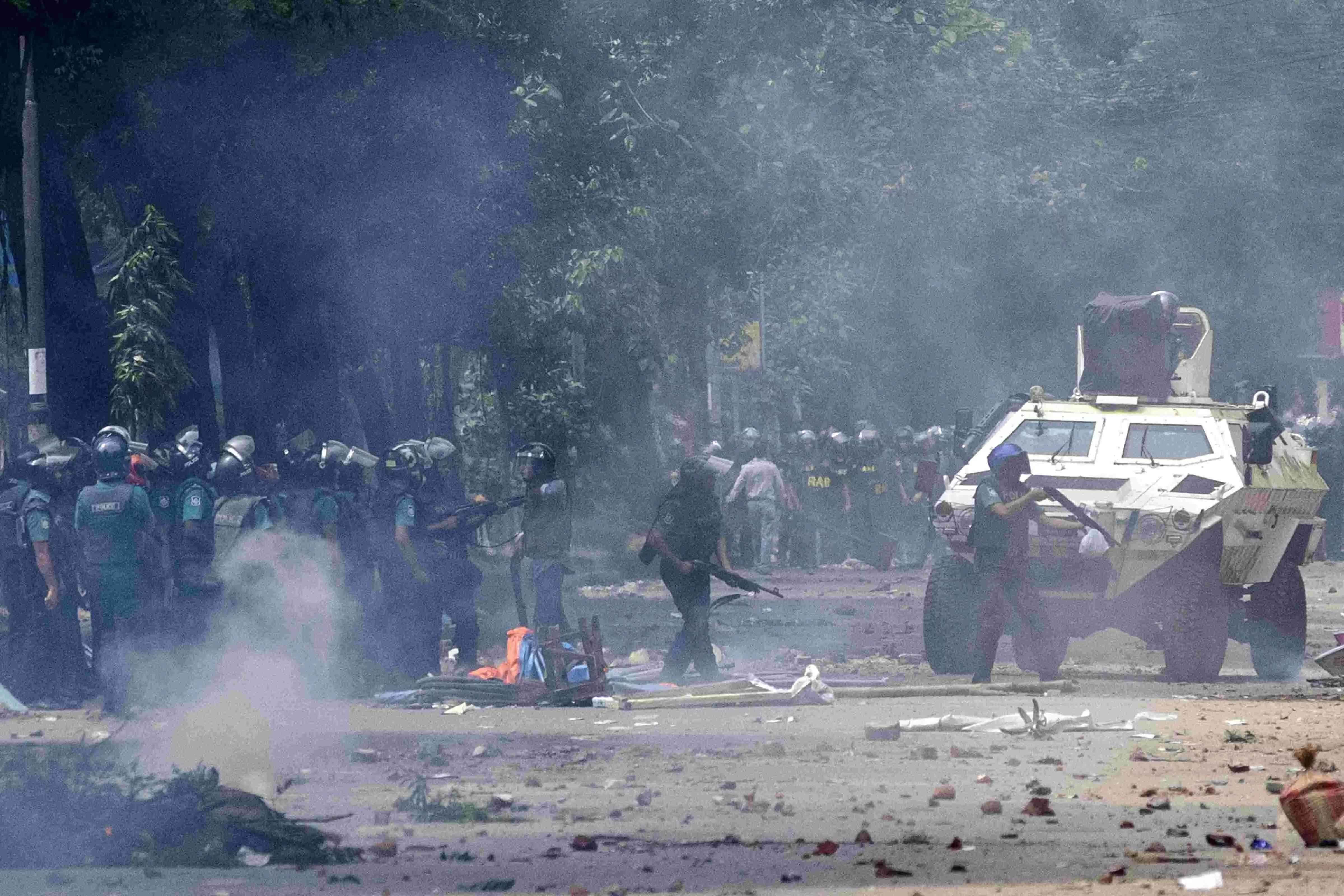Disastrous confrontation

Bangladesh is reeling under a disastrous confrontation between the government and students, both critical in shaping the present and future of the nation. The country’s top court gave its verdict on the crux of the controversy yesterday—job quota in government exams for the kins of the freedom fighters, against which the larger student community protested vehemently. In just around a week, the country has witnessed the killing of more than 100 people in violent incidents, leaving many more injured. The government, led by Prime Minister Sheikh Hasina, imposed a nationwide curfew and resorted to drastic measures, including a ‘shoot-on-sight’ order to quell the unrest.
Protests form the cornerstone of any democracy, but the anatomy of events leading up to violent escalations in Bangladesh is crucial to chart a peaceful way forward. The quota system in Bangladesh reserves 30 per cent of civil services jobs for the descendants of those who fought in the 1971 Liberation War, a provision meant to honour the sacrifices made during the country's struggle for independence. Additionally, women, backward districts, ethnic minorities, and people with physical disabilities enjoy 10 per cent, 10 per cent, 5 per cent, and 1 per cent reservation, respectively. The larger student community views the current system as an outdated relic that perpetuates inequality. Back in 2018, massive student protests forced the government to suspend the quota system. However, in June this year, the High Court reinstated the quotas, prompting renewed outrage. Now, the Supreme Court has ruled that 93 per cent of the government jobs be allocated on the basis of merit, while limiting the reservation for kins of freedom fighters at 5 per cent.
The situation took a drastic turn on July 14 when Prime Minister Sheikh Hasina, in response to the protests against job quota for freedom fighters, questioned whether the ‘descendants of Razakars’ should receive quota benefits! Her expression equating students with ‘descendants of Razakars’ was indeed a political folly. The term ‘Razakar’ carries a derogatory connotation in Bangladesh, referring to a militia that went against the Bangladesh Liberation War. Such a reference was certainly not to go well with the protestors, who claimed not to have any political inclination, and were rooting for a merit-based system. Following the Supreme Court verdict, students and the government must exercise extreme caution in dealing with each other. A sense of mistrust between the two parties is not good for either of them, and the nation as whole. The government, in particular, should reach out to the students in a calm and composed manner to understand their grievances. The stringency on the government’s part should be limited to the extent of restoring and maintaining public order, and not to act in vengeance.
The international community, including India, has been watching the developments with great concern. New Delhi has facilitated the return of nearly 1,000 Indian nationals from Bangladesh but has refrained from commenting on the internal affairs of its neighbour. Additionally, the High Commission of India in Dhaka and Assistant High Commissions are reported to be in regular touch with more than 4,000 students remaining in various universities in Bangladesh. Notably, the protests in Bangladesh have garnered attention and support from neighbouring West Bengal in India, where intellectuals and students expressed solidarity with their Bangladeshi counterparts.
It is imperative for the Bangladesh government to listen to the voices of its youth. The government's heavy-handed approach risks alienating a generation that is poised to drive the country's progress. Engaging in meaningful dialogue with students could pave the way for a peaceful future.



